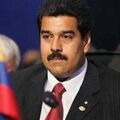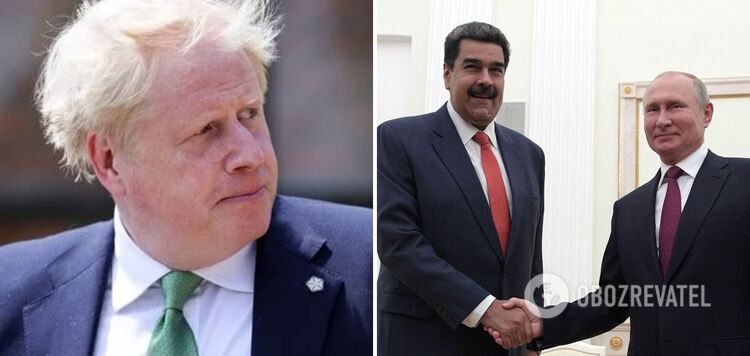
Nicolas Maduro
Nicolás Maduro is the deposed president of Venezuela and a Venezuelan politician.
He was born on November 23, 1962 in Caracas, Venezuela. Graduated from Avali Lyceum and public high school. No higher education.
While still working as a bus driver, unofficially became a member of a labor union that represented the workers of the Caracas subway. This is how he began his political career. Maduro is also considered one of the founders of the Movement for the V Republic. He was instrumental in the 1998 liberation and presidential campaign of Hugo Chavez.
Since 1998, he was elected as a deputy to the Venezuelan parliament.
From 2006 to 2013, he was Foreign Minister of Hugo Chávez's government, he was also Vice President from 2012 to 2013.
From March 5 to April 19, 2013, after the death of Hugo Chavez, he served as acting president of Venezuela.
In the general presidential election on April 14, 2013, Maduro beat his opponent and received 50.76% of the vote. However, his rival did not recognize the election results, but Maduro still became president of Venezuela.
Since 2014, protests began in Venezuela due to the dire economic situation in the country, which in turn was the result of the inept economic policies of the previous president Hugo Chavez and the current president. Another reason for this was the sharp drop in oil prices.
In 2016, the Venezuelan parliament tried to remove President Maduro from office, but the impeachment attempt failed. He was then accused of a "coup d'état."
As a result of Maduro's rule, the government's revenues from oil exports declined and the country experienced record inflation. At the same time, the country's population began to rapidly become poorer.
In just his first term, Maduro's policies led Venezuela to default, inflation exceeded 2 billion percent, and millions of citizens fled the country (about 10% of the population).
On January 10, 2019, Venezuelan President Maduro, who is known for his sympathy for Russian leader Vladimir Putin, was inaugurated for a second six-year term. He won the election with 68% of the popular vote.
In response, Paraguay severed relations with Venezuela and closed its embassy there. The US also refused to recognize the president. In turn, Peru recalled its chargé d'affaires from Venezuela for consultations.
January 23 in the Venezuelan capital Caracas, thousands of people came out to protest against President Maduro. Residents thus responded to the call of the opposition, which does not recognize the result of the election.
As a result, the head of the Venezuelan parliament and opposition leader Juan Guaido declared himself the new president instead of Maduro. He was supported by the National Assembly, appointing him as the "transitional" head of state. Guaido took the oath of office during an opposition rally in the Chacao neighborhood of Caracas.
In favor of President Maduro were: Mexico, Russia, Turkey and Uruguay. And Guaido was recognized by more than 10 countries: Argentina, Paraguay, Colombia, the United States, Canada, Brazil, Peru, Chile, Ecuador, Costa Rica, Georgia and Guatemala. Spain has refrained from making statements about Venezuela's new interim president.


